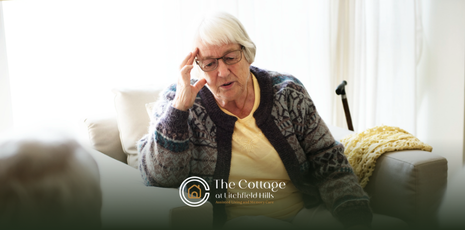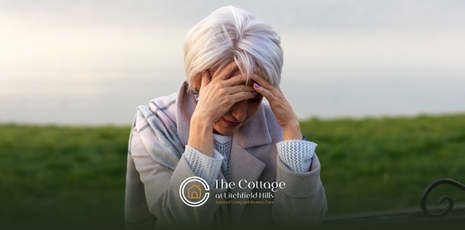Tips for Planning a Stress-Free Respite Care Experience for Your Loved One

Key Highlights
- Respite care provides temporary relief for caregivers while ensuring loved ones receive professional support.
- Planning ahead helps reduce stress for both caregivers and seniors.
- Clear communication with care staff ensures personalized and safe care.
- Preparing your loved one emotionally and physically promotes a smooth transition.
- Understanding respite care services and expectations maximizes the experience’s benefits.
Providing care for a loved one can be rewarding, but it also comes with emotional, physical, and mental challenges. Respite care offers temporary relief, giving caregivers a chance to rest while ensuring their loved ones continue to receive professional support. Planning a respite care stay effectively can make the experience smooth, comfortable, and stress-free for both the senior and the caregiver.
Understand What Respite Care Is
Respite care is short-term care provided to seniors in a residential or in-home setting. It can last from a few hours to several weeks, depending on the needs of the caregiver and the senior.
Benefits of respite care include:
- Allowing caregivers time for rest, errands, or vacations
- Providing seniors with structured, professional care and social engagement
- Reducing caregiver burnout and stress
- Offering a safe environment with trained staff for seniors who may require assistance with daily activities or medical support
Understanding the purpose and scope of respite care helps families plan effectively and set realistic expectations for the experience.
Plan Ahead for a Smooth Transition
Advance planning is key to reducing stress for your loved one. Preparing for a respite stay should involve both logistical and emotional considerations.
Steps for effective planning:
- Determine the duration and type of respite care: Decide whether short-term in-home care, a stay at an assisted living facility, or memory care support is needed.
- Schedule the stay during a low-stress period: Avoid times when your loved one may already feel anxious, such as holidays or major life changes.
- Gather medical information and documents: Ensure staff have access to medications, medical histories, allergies, and special care instructions.
- Communicate preferences and routines: Share your loved one’s daily habits, favorite activities, and dietary needs to maintain consistency.
Planning Checklist for Respite Care
| Task | Details | Timing |
|---|---|---|
| Choose Respite Type | In-home, assisted living, or memory care | 2–4 weeks in advance |
| Schedule Stay | Avoid major events or stressors | 2–4 weeks in advance |
| Medical Preparation | Medications, allergies, doctor notes | 1–2 weeks in advance |
| Personal Belongings | Favorite clothing, comfort items, books | 1 week in advance |
| Communicate Routine | Meal times, sleep schedule, activity preferences | Before stay begins |
Prepare Your Loved One Emotionally
Emotional preparation is as important as logistical planning. Seniors may feel anxious or uncertain about staying in a new environment, even temporarily.
Tips for emotional readiness:
- Talk about the experience positively: Frame the respite stay as an opportunity for socialization, engaging activities, and personalized attention.
- Introduce staff and environment: If possible, visit the facility beforehand or meet caregivers in-home to create familiarity.
- Maintain routines: Encourage consistency with familiar daily activities, bedtime routines, and meal schedules.
- Encourage personal items: Bring comfort items such as photos, blankets, or favorite books to create a sense of security.
These steps help your loved one feel safe, respected, and involved in the process, reducing anxiety and resistance.
Communicate Clearly With Care Staff
Effective communication with respite care staff is essential to ensure a positive experience. Staff need a complete understanding of your loved one’s needs, preferences, and medical requirements.
Key communication points include:
- Medical and dietary needs: Allergies, medications, mobility restrictions, or chronic conditions
- Behavioral or cognitive considerations: Memory loss, dementia, or mood-related concerns
- Daily routines: Sleep schedules, exercise preferences, and favorite activities
- Emergency contacts: Primary caregiver information and preferred communication methods
Clear, detailed communication builds trust between staff, your loved one, and the family, helping everyone feel confident in the care provided.
Pack Essentials and Comfort Items
Packing the right items can significantly improve your loved one’s comfort during a respite stay. Essentials may include:
- Clothing appropriate for the weather and facility environment
- Toiletries and personal hygiene items
- Medications, supplements, and any medical devices
- Comfort items such as pillows, blankets, or favorite books
- Engaging items for leisure, such as puzzles, crafts, or music
By anticipating needs and packing thoughtfully, seniors feel more at home and experience less stress during the transition.
Maintain Connection During the Stay
Even during a respite care stay, staying connected can provide reassurance and emotional support for your loved one.
Ways to maintain connection:
- Schedule regular phone or video calls
- Share messages or letters for the staff to read aloud
- Ask staff to provide updates on daily activities and well-being
Maintaining a balance between giving yourself a break and staying connected helps your loved one feel secure without overwhelming the respite experience.
Maximize the Benefits of Respite Care
Respite care is more than a break for caregivers; it can be an enriching experience for seniors. By taking advantage of structured activities, socialization, and professional support, seniors can benefit physically, mentally, and emotionally.
Benefits include:
- Engaging in group activities that promote cognitive stimulation
- Accessing personalized care for health management
- Social interaction with peers and staff
- Relief from caregiver-related stress, which indirectly improves the senior’s overall well-being
Approaching respite care with clear goals and preparation ensures that both the caregiver and the senior gain the maximum benefit.
Tips for Returning Home
After a respite care stay, your loved one may need time to readjust to their usual environment.
Returning home smoothly:
- Debrief with staff: Review any updates, health notes, or new observations from the respite period.
- Re-establish routines gradually: Reinforce normal sleep, meal, and activity schedules.
- Maintain social engagement: Encourage continued participation in hobbies or outings experienced during the stay.
- Monitor emotional response: Watch for signs of stress or anxiety and address them with patience and reassurance.
This post-respite care transition ensures continuity in care and helps sustain the positive benefits of the experience.
Final Thoughts
Planning a stress-free respite care experience requires thoughtful preparation, clear communication, and emotional support. By anticipating needs, introducing your loved one to caregivers, and maintaining routines, the respite stay can be a positive and restorative experience for both the senior and the caregiver.
At The Cottage at Litchfield Hills, our compassionate team is dedicated to providing personalized respite care, ensuring safety, comfort, and peace of mind for every resident and their families. Reach out today!
Frequently Asked Questions
How long can a respite care stay last?
Respite care can range from a few hours to several weeks, depending on the caregiver’s needs and the senior’s comfort level.
What should I bring for my loved one during a respite stay?
Essentials include clothing, toiletries, medications, comfort items, and personal leisure activities.
How do I prepare my loved one emotionally for respite care?
Talk positively about the experience, introduce staff, maintain routines, and bring familiar items to provide security.
Will staff provide updates during the respite stay?
Yes, caregivers typically receive regular updates on activities, health, and well-being.
Can respite care benefit seniors as well as caregivers?
Absolutely. Seniors gain structured care, social interaction, and activities that enhance physical and mental well-being while caregivers enjoy a restorative break.
Sources:
- https://www.ncoa.org/article/what-is-respite-care-a-guide-for-caregivers/
- https://www.webmd.com/cancer/what-is-respite-care
- https://pmc.ncbi.nlm.nih.gov/articles/PMC7048638/
- https://pmc.ncbi.nlm.nih.gov/articles/PMC11089915/
- https://newsroom.clevelandclinic.org/2022/12/09/why-socialization-is-important-for-older-adults






